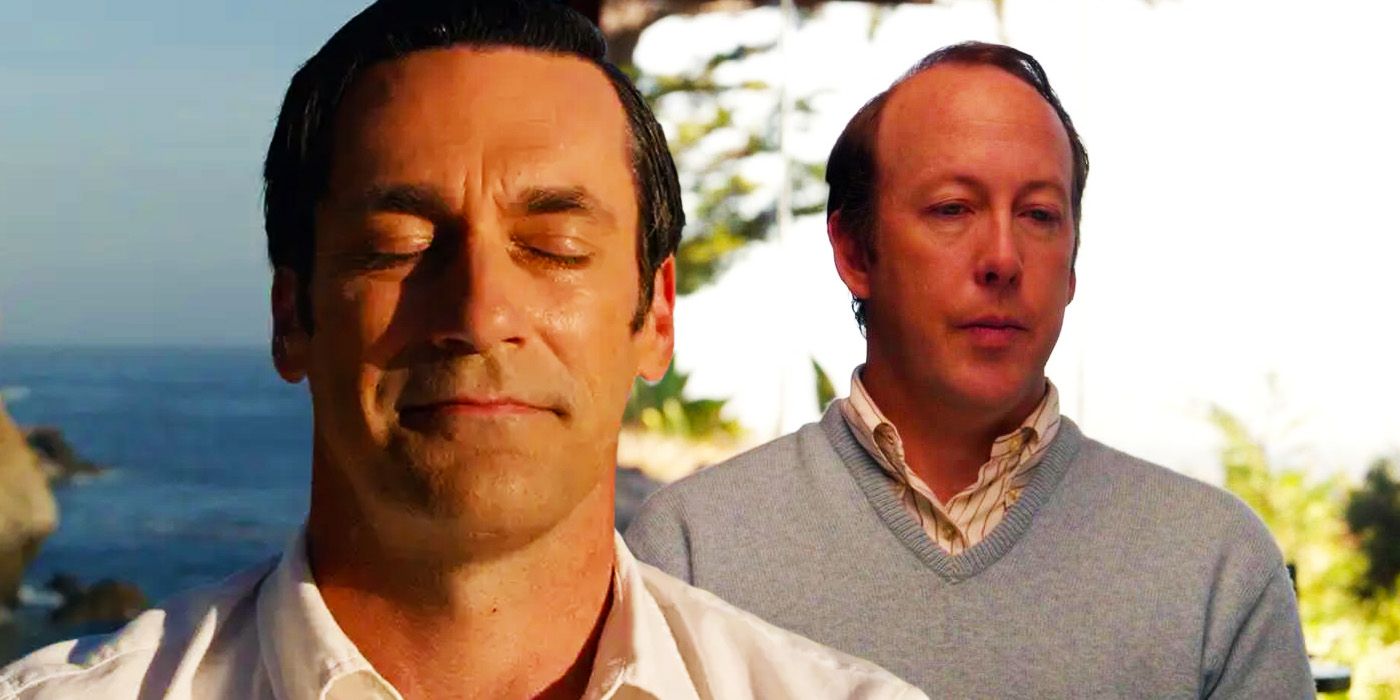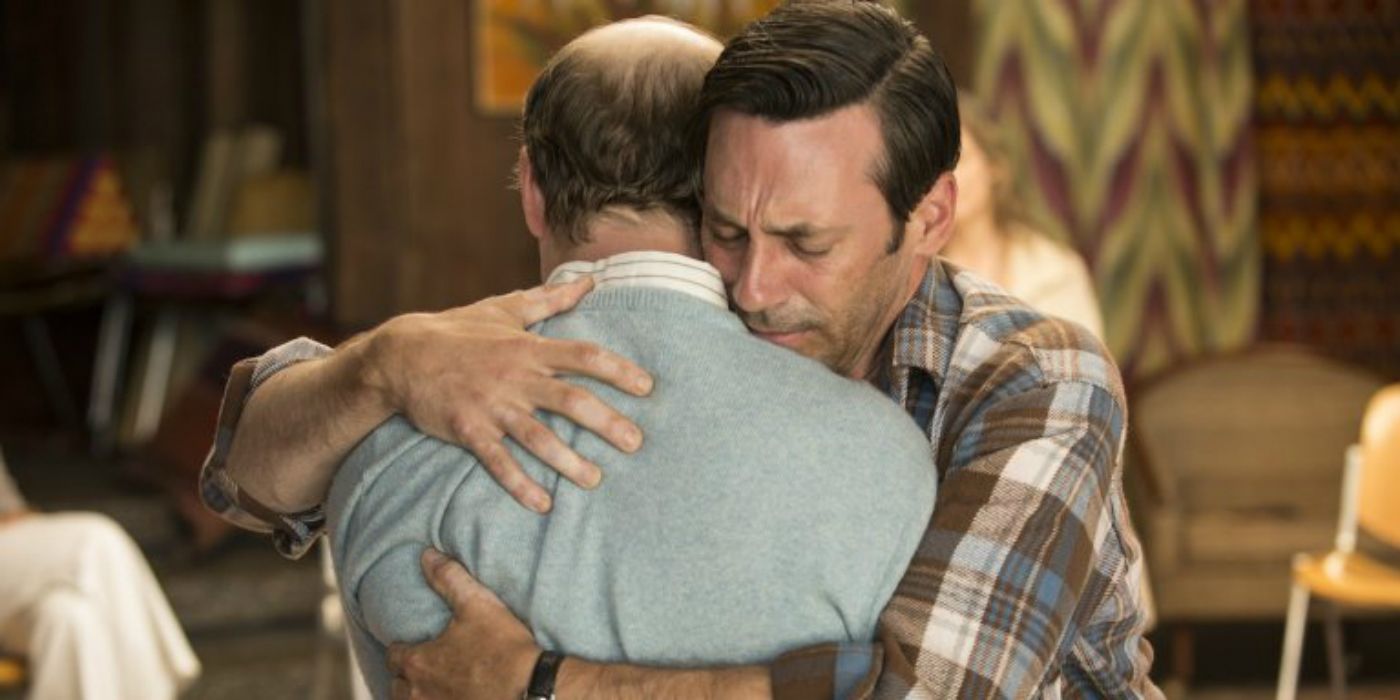After hearing Leonard's story at the end of Mad Men, Donald Draper has arguably his biggest breakthrough—here's why. Donald Draper is an immensely intriguing character played masterfully by Jon Hamm during the seven-season run of AMC's Mad Men. What makes Donald Draper so fascinating is the duality of his character. Don was born as Dick Whitman, an unloved child with a grueling upbringing who leaves his poverty-stricken life to fight in the Korean war. After an explosion kills his commanding officer, a man named Donald Draper, Dick assumes his identity, gifting himself a shot at the American dream and a new start as the talented womanizer Ad Executive Donald Draper.
Over the course of Mad Men's seven seasons, very few people ever find out Don Draper's real identity, despite Dick Whitman's tragedy occasionally leaking through Don's cool, calculated stare. As the show progresses, Don finds it hard to keep his life on the rails as he drinks more excessively, and pushes away the people who are closest to him. By the end of Mad Men's seventh season, Don has fled from work at McCann, the ad agency where he's employed, and finds himself in a retreat where he joins a group therapy session, leading to his biggest breakthrough.
During Mad Men's series finale, a man named Leonard (played by Evan Arnold) begins speaking in the group session. He talks about how he is essentially invisible to those around him, even to his family who he says, "Don't look up when I sit down." He goes on to describe a dream he had where he's sitting on a shelf in the refrigerator and the light turns on when the door opens to reveal a person who looks happy, but then the door closes and he's once again left in the dark, unseen and unchosen. After Leonard has finished his story Don stands up, before dropping to his knees and embracing Leonard. Don comes to a major breakthrough and realization, essentially accepting who he truly is and embracing himself.
Mad Men's Dick Whitman was an orphan who, just like Leonard, was unchosen and left in the dark, but their similarities don't end there. Leonard also talks about love, saying, "You spend your whole life, thinking you're not getting it, people aren't giving it to you, then you realize they're trying, and you don't even know what it is." This perfectly sums up how Don feels throughout his life and mirrors what Don says in season 6 of Mad Men when talking about loving his children. Don says, "You want to love them, but you don't, and the fact that you're faking that feeling makes you wonder if your father had the same problem." Love is something that Don has often run away from throughout Mad Men, often sabotaging himself by committing adultery or by being unwilling to commit to a relationship emotionally.
While the act of hugging Leonard and crying in front of a crowd seems out of character for Mad Men's Donald Draper, it's completely reasonable for Dick Whitman. The fact that Don completely understands how Leonard feels gives Don's other side a moment of self-realization and self-acceptance. As Mad Men progresses we see Don try to get picked off the shelf, but he never does. Neither Leonard nor Don understand love, and neither feel seen. For Don to finally feel that connection to another person, to feel like he understands Leonard—and for Don to finally understand himself—gives him the moment of clarity he's been waiting seven seasons to find. AMC's Mad Men ends with Don finding peace as he meditates on the banks of a cliff, chanting, "Omm," as he thinks up one of the greatest ad campaigns of all time, one centered around caring for one another and peace, demonstrating his final breakthrough and the satisfying conclusion of his character arc.


